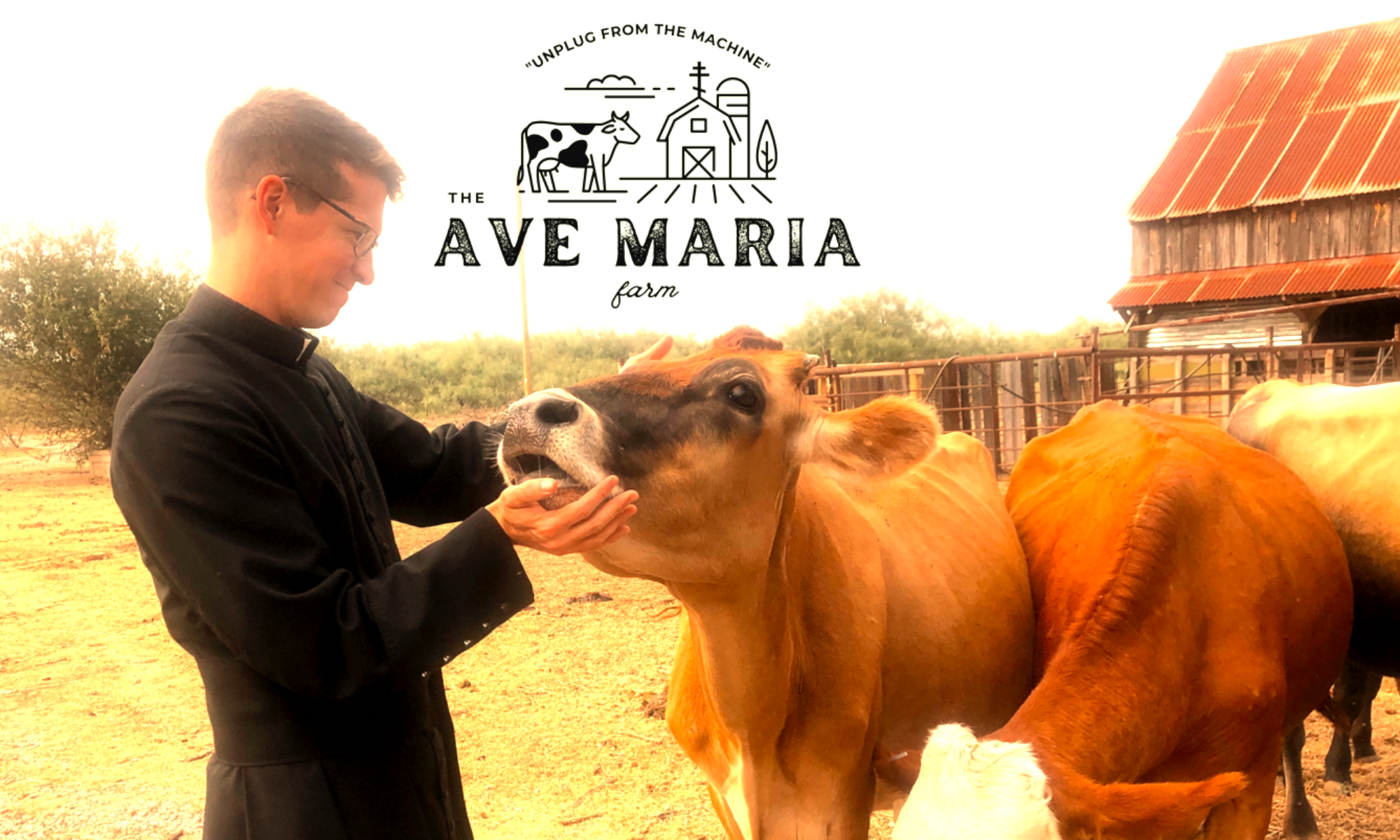The spiritual life is the cultivation of a healthy relationship with God, man, and creation. Our relationship with each is indispensable. One cannot love one without loving the other. In his first epistle, St. John insists: “If anyone says, ‘I love God,’ but hates his brother, he is a liar. For anyone who does not love his brother, whom he has seen, cannot love God, whom he has not seen” (4:20). Similarly, St. Nikephoros taught: “If you don’t love trees, you don’t love God.” He also prophesied that a day was coming when “men will become poor because they will not have a love for trees” — perhaps referring to the world of industry and consumerism. By all means, we must get to work developing the right relationship with God and His creation.
Sin Stems from and Exacerbates Unhealthy Relationship with Creation
From the beginning, humanity has struggled with love and desire. We totter between loving a thing for what it is and objectifying a thing due to selfish desire. Theokritoff writes: “Love and desire, whether for people, other creatures, things or places, are constantly merging into the urge to grasp, to possess, to keep for ourselves, to consume” (Theokritoff 93). God’s first expectation from man was to put a check on our urge to consume. We fell away from God because we failed to check our urges. In St. Basil’s words: “If we had fasted, we should never have been banished from Paradise” (Homily on Fasting). We were created to love. We fell by trying to possess. Spiritual healing comes by curbing our desire and restoring love.
Asceticism: Loving by Detaching
We cannot love without first detaching. This is the role of asceticism, and the reason asceticism is foremost in spirituality.
“If we give up all attachments for the sake of God’s love, only then are we able to love all of his creation in freedom, without needing to possess it or be possessed by it. The discipline by which we achieve this detachment is called asceticism” (Theokritoff 94).
“Many people today associate that word with stark renunciation, something that only monastics are called to do. But asceticism is bigger and broader than that: it is a process of re-ordering our relationship with the material world, and it begins with the part of that world nearest and dearest to us — our own body” (Theokritoff 94).
St. John Chrysostom shares how “prayer and fasting…have the effect of reducing our wants to a minimum; they free us from covetousness and dispose us to give alms” (Theokritoff’s paraphrase of his Homily on Matthew LVII). The virtues play this important role. They suffocate our selfishness and free us to love. To paraphrase the Jewish existential philosopher, Martin Buber, asceticism transforms us from Me-It creatures into Thou-I creatures.
Walk Lightly on Earth
But should we not “despise” earthly things? Scriptural and Patristic phrases sometimes cloud the issue due to translation and context. For instance, “set your minds on things that are above, not on things that are on earth” (Col. 3:2) and ‘teach us to despise earthly goods’ (collect prayer), appear to recommend contempt for creation. This misses the mark entirely. The Patristic attitude is illustrated in St. Basil’s own words in his monastic rule. Theokritoff explains: “[St. Basil] stresses that even possessions are not evil per se; the problem lies in ‘having a wrong attitude to things or not using them well.’ To ‘despise’ or ‘think lightly of’ the things around us, including those we possess, means to reduce to a minimum our demands on them; it is to walk lightly on the earth” (104). Idolatry and contempt for creation are both mistakes. Our relationship with creation should be one of detachment and reverence.
How We Use Things Matters
Asceticism involves more than our relationship with food. It requires a reverential treatment of every part of our life, including our homes, clothes, means of transportation, and even our table scraps.
St. John Cassian once went on a pilgrimage to various Egyptian monasteries. He was impressed by the high value they placed on treating their possessions. In his chronicles, he describes one brother who was reprimanded for being “careless about sacred property,” and given public penance. What was his wrongdoing? He dropped three lentils while preparing food. Cassian went on to explain that the monks “believe not only that they are not their own, but also that everything they possess is consecrated to the Lord. So if anything whatsoever has once been brought into the monastery, it ought to be treated with the utmost reverence as a holy thing” (Institutes IV.2O).
During Mass, the priest is required to pay the utmost attention to the slightest crumb of the Holy Eucharist. In a similar vein, altar servers must kiss every object handed them from the priest’s hands. St. Benedict extended this reverence to the very tools and devises in the monastery, instructing the brethren: “Look upon all the tools and all the property of the monastery as if they were sacred altar vessels” (Rule XXI, 1O).
Asceticism Means Avoiding Waste of Any Kind
St. Basil taught: “The Christian ought to regard all the things given to him as being for his use, not to hold as his own or to hoard; and he should be careful of everything since it belongs to the Lord, and should not overlook any things that might be being thrown away” (Letter XXII.I). St. Joseph the Hesychast regularly picked up small bits of trash, instructing: “Do not despise even the smallest of things…waste of these things counts, and the blessing will depart from our house” (Struggles — Experiences — Teachings 1898-1959).
We can learn from these saints a proper Christian ethos towards possessions. Everything is a gift from God. Waste indicates misuse and lack of gratitude. Holiness is a right relationship with God, man, and creation.

